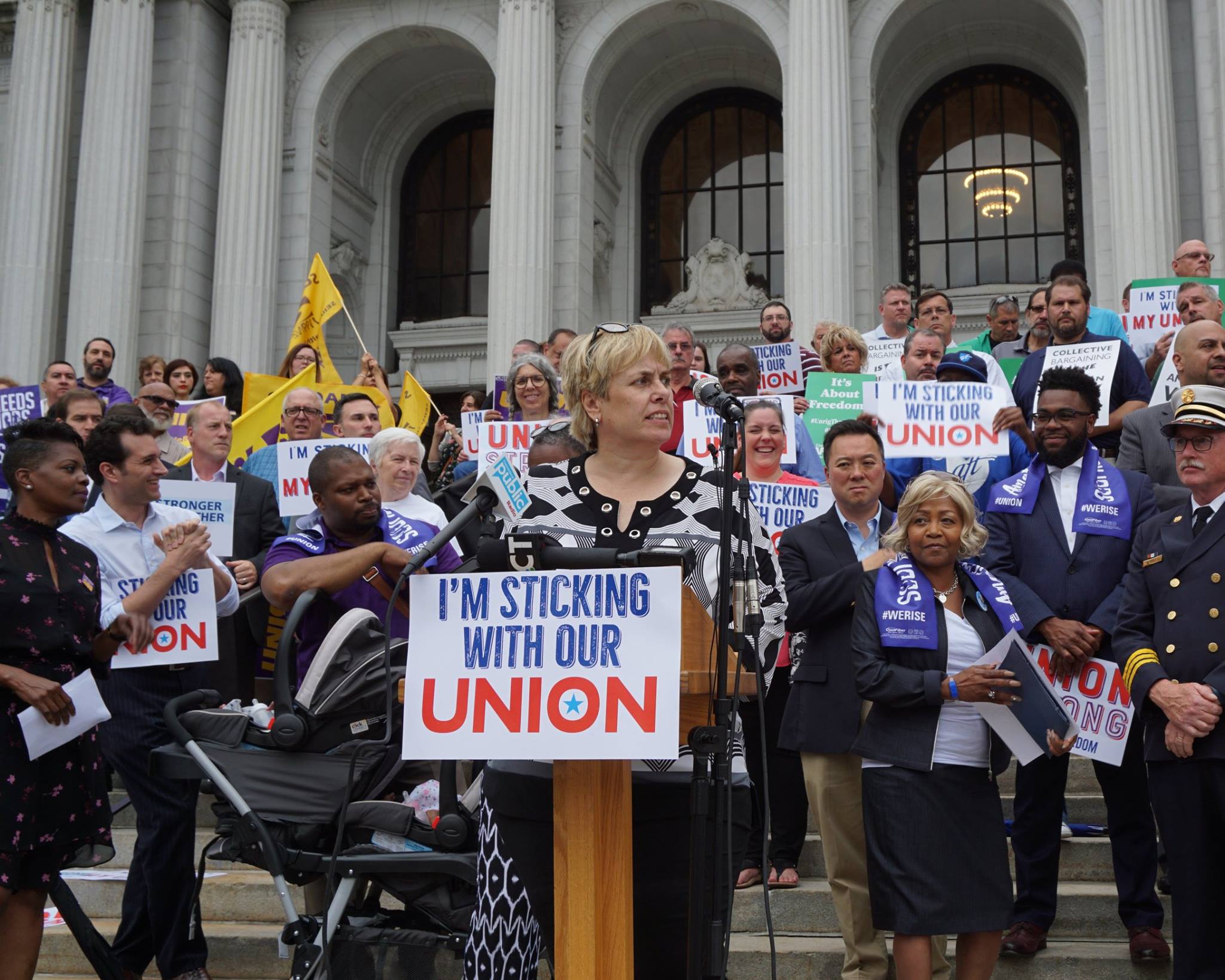Over the weekend, Gov. Ned Lamont signed a bill into law that will allow government unions to have more access to new and current employees and enshrine union dues authorizations into state law.
Senate Bill 908 was fashioned as a response to the United States Supreme Court’s 2018 ruling in Janus v. AFSCME that said government unions could no longer require public employees to pay a fee to a union as a condition of employment under their Freedom of Speech rights.
The Janus decision had an immediate effect, essentially stripping public-sector unions of millions in what were known as “agency fees” – a fee paid by an employee who did not want to join the union and pay full union dues.
The effect of the Janus decision on union membership, however, has been difficult to gauge. Agency fee payers were not considered members and while union officials condemned the decision, some said it turned out to be a “blessing in disguise,” as public-sector unions attempted more outreach campaigns for new members.
According to data received under a Freedom of Information request, Connecticut’s state employee unions have seen a decline in membership over the past year even as they take in more money.
As of May 2021, state employee union membership had declined by 1,254 employees, coinciding with a decrease in the state workforce of 785 employees who were part of a bargaining unit. Roughly 86 percent of state employees covered by a collective bargaining agreement are dues paying union members.
Only 57 percent of UConn graduate students who are part of the United Auto Workers union are dues-paying members and only 67 percent of UConn faculty were paying dues.
Other bargaining units have much higher membership rates, including the state’s Judicial Marshals and the state’s prosecutors, each of which have 97 percent of bargaining unit employees paying dues. Connecticut’s criminal justice inspectors had a 100 percent membership rate.
Overall, of the state’s 44 bargaining units that existed in 2020, 28 saw declining membership rates and 16 saw increases in membership. Ten bargaining units saw drop-offs of 5 percent or more.
Meanwhile, the unions have taken in more money, with dues payments increasing from $32.1 million in 2019 to $35.2 million in 2020, according to the data. 2020 marked the most money state employee unions have taken in over the past five years, bolstered, in part, by state employee raises and overtime.
Even prior to the Janus decision, unions began an effort to curtail potential losses by engaging in employee outreach and adjusting the language on their union membership cards to only allow a set window of time during which a member can cease paying dues.
Those “escape periods” are currently being litigated in several states and there have been several such cases in Connecticut. Senate Bill 908, which was just signed by Lamont, makes the escape periods of matter of state law.
The bill was nearly identical to bills passed in several other states that give union representatives more access to public employees, particularly new employees, in an effort to bolster their ranks.
Labor leaders in Connecticut did not hide the fact that Senate Bill 908 was a response to the Janus decision and the bill specifically prevents public employers from telling new employees about their Janus rights.
CT AFL-CIO President Sal Luciano said union membership “has held steady” since 2018 in his testimony before the Labor and Public Employees Committee, noting membership declined only 1 percent.
“That’s because they understand their voices and are stronger when they stick together,” Luciano testified. “No court decision can ever take that away from them.” He was joined by numerous other Connecticut labor leaders echoing his statement.
The bill was opposed by the Connecticut Conference of Municipalities and the Council of Small Towns, both of whom argued the bill was an unnecessary burden on municipalities and interfered with the working relationships human resources directors had with their municipal unions.
According to data from the U.S. Census Bureau, Connecticut’s public sector is the most heavily unionized in the country, with 74 percent of all public sector workers claiming union membership as opposed to the state as a whole with 18.4 percent of all workers who are union members.
**Ken Girardin contributed to this article**


John C Miller Jr
June 12, 2021 @ 4:58 pm
well, i guess we know who really runs the state. what are the odds that this will end up in court.
Andrew S Lieberman
June 22, 2021 @ 2:33 pm
“…the bill specifically prevents public employers from telling new employees about their Janus rights.” Fascinating. The Governor passed a law that restricts an employer from explaining to new employees about their federally guaranteed rights. what’s to stop him from passing a law restricting discussion of any other rights? First amendment? miranda?
Debbie
August 18, 2021 @ 6:01 am
the governor needs to ajust the bill i should be able to opt out of union i should not have only a ten day period a year to do this the union lies changed are date we never had a choice